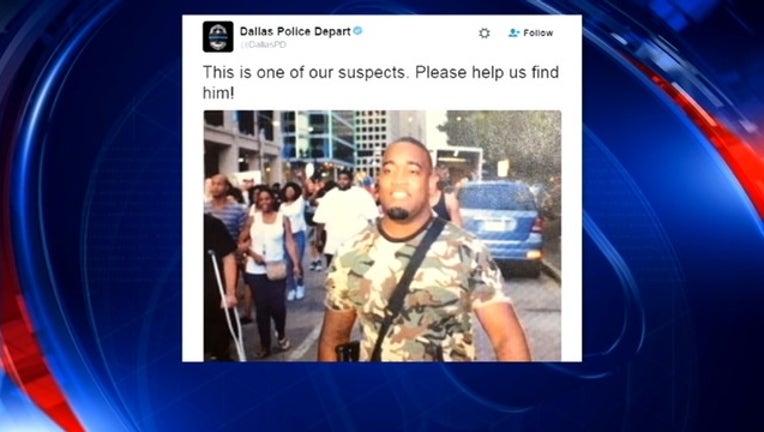Man falsely identified as Dallas police sniper files suit against city

A man who Dallas Police wrongfully identified as the shooter in the 2016 Police shooting is suing the department and the city, saying that the city violated his civil rights by wrongfully detaining him and refusing to return his property.
A photo of Mark Hughes was taken as he legally brandished a rifle at the July 7, 2016 rally that peacefully protested the recent killings of black men by police. The photo was before gunfire interrupted the rally, killing five police officers.
Later that night, police tweeted out a picture of him that night which wrongfully identified Hughes as the shooter. The lawsuit, filed Thursday in federal court, alleges that the tweet led to Hughes and his brother, Cory, being illegally detained and his property being seized for more than five months.
It also claims that the department was not properly trained to deal with individuals who were lawfully carrying firearms.
Immediately after the shooting, Hughes says he turned in his rifle to a nearby officer, who told him that he could retrieve it the following day.
However, the police department tweeted a picture of Hughes holding a rifle at 10:52, almost two hours after he turned his rifle in to police. The caption on the tweet read “This is our suspect! Please help us find him!” Hughes turned himself in shortly after. His brother was also questioned by police.
The real shooter, Micah Xavier Johnson, was killed early the next morning when police detonated a bomb attached to a robot.
The lawsuit claims that Hughes and his brother were interrogated without being given their Miranda rights. It also claims that the department did not allow the brothers’ lawyer to speak to them during the interrogation.
The department took Hughes’ gun, shirt and keys, according to the lawsuit. It allegedly did not return those items for five months.
The lawsuit alleges that there was racial element to the way Hughes was treated.
“It is the Plaintiff’s belief that most, if not all, police officers view a black male with a weapon, even if lawfully possessed – as a threat,” the lawsuit states. “The plaintiff was treated extra-legally, which is to say outside of and in spite of the law. It was a palpable, collective shot of police power and authority.”
Hughes is seeking compensation for damages, pain and suffering, and emotional distress.
It's not the only time Hughes has accused a department of misconduct. He claimed that he was improperly arrested after a 2016 traffic stop in Dalworthington Gardens.
The city of Dallas did not issue a statement, as it does not comment on pending litigation.

